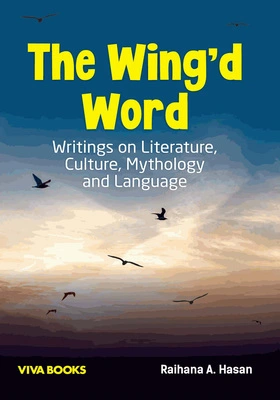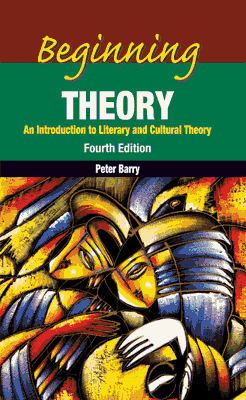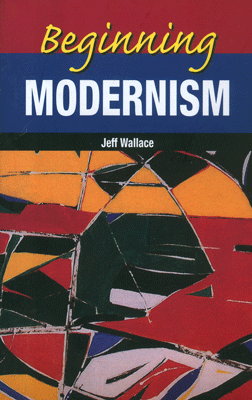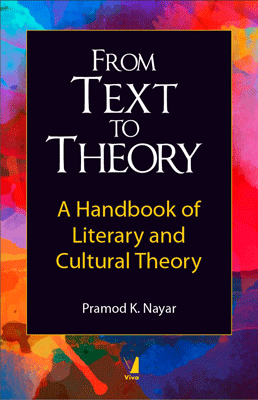Othello
Othello
Edited and with an introduction by Harold Bloom
₹535.50 ₹595.00 Save: ₹59.50 (10%)
Go to cart-
Out of Stock
ISBN: 9788130933924
Bind: Paperback
Year: 2016
Pages: 338
Size: 152 x 228 mm
Publisher: Facts On File Inc.
Published in India by: Viva Books
Exclusive Distributors: Viva Books
Sales Territory: India, Nepal, Pakistan, Bangladesh, Sri Lanka
Description:
The most striking difference between Othello and Shakespeare's other tragedies is its more intimate scale. Because the play focuses on personal rather than public life, Othello's private descent into jealous obsession is especially chilling to behold. This invaluable new study guide to one of Shakespeare's greatest tragedies contains a selection of the finest criticism through the centuries on Othello, including commentaries by such important critics as Voltaire, Charles Lamb, A.C. Swinburne, T.S. Eliot, and many others. Students will also benefit from the additional features in this volume, including an introduction by Harold Bloom, an accessible summary of the plot, an analysis of several key passages, a comprehensive list of characters, a biography of Shakespeare, essays discussing the main currents of criticism in each century since Shakespeare's time, and more.
Each volume in the Bloom's Shakespeare Through the Ages contains the finest criticism on a particular work from the Bard's oeuvre, selected under the guidance of renowned Shakespearean scholar, Harold Bloom Intended for students just beginning their exploration of Shakespeare, these invaluable study guides present the best of Shakespeare criticism, from the 17th century to today In the process, each volume also charts the flow over time of critical discussion of a particular work.
This essential set is unique not only in the range of commentary it provides on each of Shakespeare's greatest works, but also in its emphasis on the greatest critics in our literary tradition — including such critics as John Dryden in the 17th century, Samuel Johnson in the 18th century, William Hazlitt and Samuel Taylor Coleridge in the 19th century, A.C. Bradley and William Empson in the 20th century, and many more Some of the pieces included are full—length essays; others are excerpts designed to present a key point.
Target Audience:
Students and academics of English literature.
Contents:
Series Introduction • Introduction by Harold Bloom • Biography of William Shakespeare • Summary of Othello • Key Passages in Othello • List of Characters in Othello
CRITICISM THROUGH THE AGES
Othello in the Seventeenth Century
1666—Samuel Pepys. From The Diary of Samuel Pepys • 1693— Thomas Rymer. From A Short View of Tragedy • 1694—Charles Gildon. ?Some Reflections on Mr. Rymer's Short View of Tragedy and an Attempt at a Vindication of Shakespeare,? from ?Remarks on the Plays of Shakespear?
Othello in the Eighteenth Century
1710—Sir Richard Steele. ?On the Funeral of Betterton,? from The Tatler • 1713—John Hughes. ?On the Tragedy of Othello,”from The Guardian • 1717—Lewis Theobald. From The Censor • 1733—Voltaire. “The Orphan,” from Philosophical Letters • 1765—Samuel Johnson. Othello (notes), from The Plays of William Shakespear • 1775—Elizabeth Griffith. From The Morality of Shakespeare's Drama Illustrated
Othello in the Nineteenth Century
1809—August Wilhelm Schlegel. “Criticisms on Shakspeare's Tragedies,” from Lectures on Dramatic Art and Literature • 1811”Charles Lamb. “On the Tragedies of Shakespeare,” from The Reflector • 1817—To William Hazlitt. “Othello,” from Characters of Shakespear's Plays • 1818—Samuel Taylor Coleridge. “Notes on Othello,” from Lectures and Notes on Shakspere and Other English Poets • 1836—John Quincy Adams. “The Character of Desdemona,” from The American Monthly Magazine • 1864—Victor Hugo. From William Shakespeare • 1880—Algernon Charles Swinburne. From A Study of Shakespeare • 1897—George Bernard Shaw, “Mainly About Shakespeare,” from London Saturday Review
Othello in the Twentieth Century
1904—A. C. Bradley. “Othello,”from Shakespearean Tragedy • 1927—T. S. Eliot. “The Hero Cheering Himself Up,” from “Shakespeare and the Stoicism of Seneca” • 1930—G. Wilson Knight. “The Othello Music,” from The Wheel of Fire • 1936—William Empson. “The Best Policy,” from Life and Letters To-Day • 1951—Harold C. Goddard. “Othello,” from The Meaning of Shakespeare • 1951—Kenneth Burke. ““Othello”: An Essay to Illustrate a Method,” from The Hudson Review • 1956—Robert B. Heilman. “Othello: The Unheroic Tragic Hero,” from Magic in the Web: Action and Language in Othello • 1961—W. H. Auden. “The Joker in the Pack,” from Encounter • 1983—A.D. Nuttall. “Othello,” from A New Mimesis: Shakespeare and the Representation of Reality • 1992—Harold Bloom. “Introduction,” from Iago
Othello in the Twenty-first Century
2000—Frank Kermode. “Othello,” from Shakespeare's Language
Bibliography • Acknowledgments • Index
About the Series Editor:
Harold Bloom is Sterling Professor of the Humanities at Yale University and the author of more than 30 books, including Shelley's Mythmaking (1959), Blake's Apocalypse (1963), Yeats (1970), The Anxiety of Influence (1973), A Map of Misreading (1975), Kabbalah and Criticism (1975), Agon: Toward a Theory of Revisionism (1982), The American Religion (1992), The Western Canon (1994), Shakespeare: The Invention of the Human (1998), How to Read and Why (2000), Hamlet: Poem Unlimited (2003), Where Shall Wisdom Be Found” (2004), and Jesus and Yahweh: The Names Divine (2005). In 1999, Professor Bloom received the American Academy of Arts and Letters” Gold Medal for Criticism.







